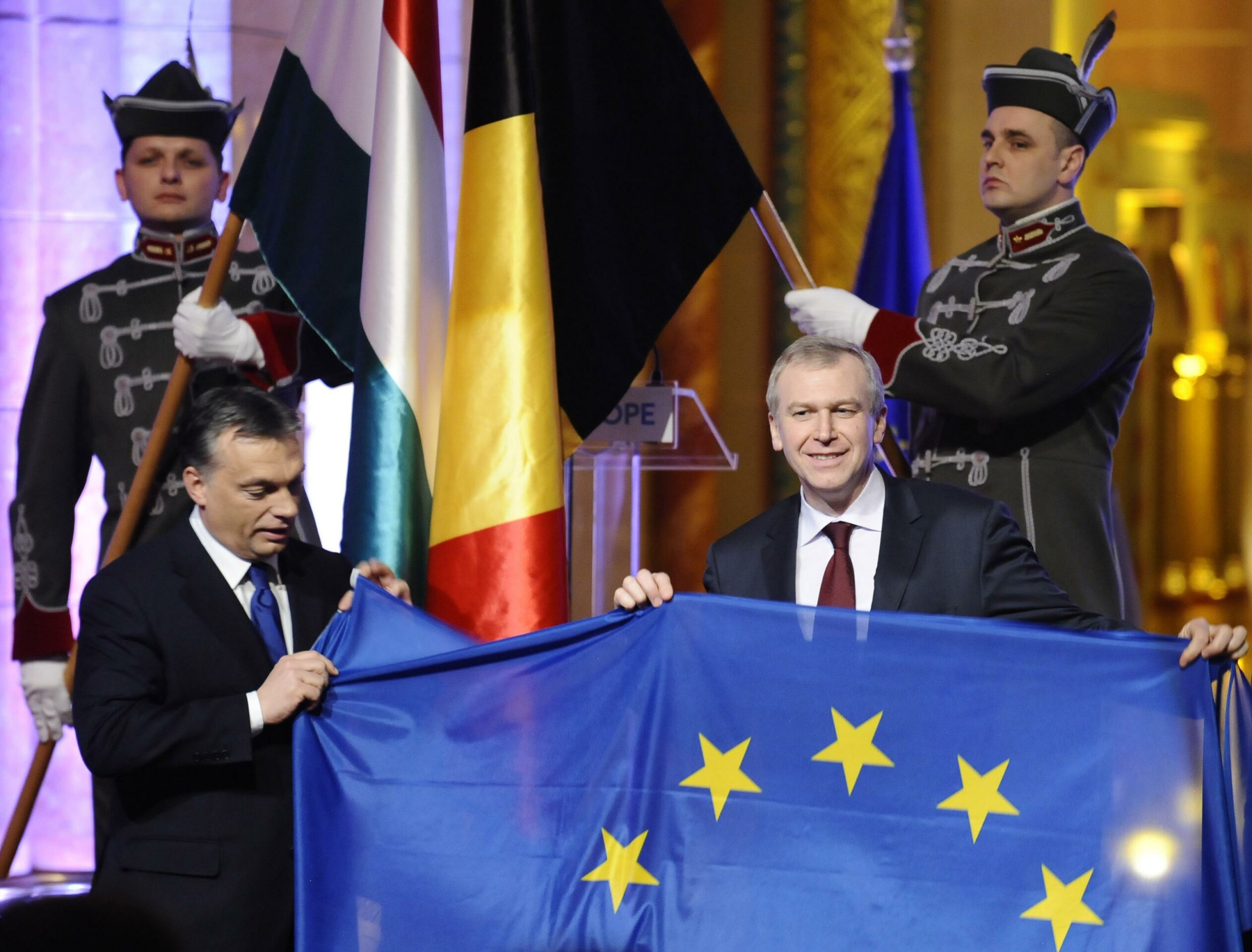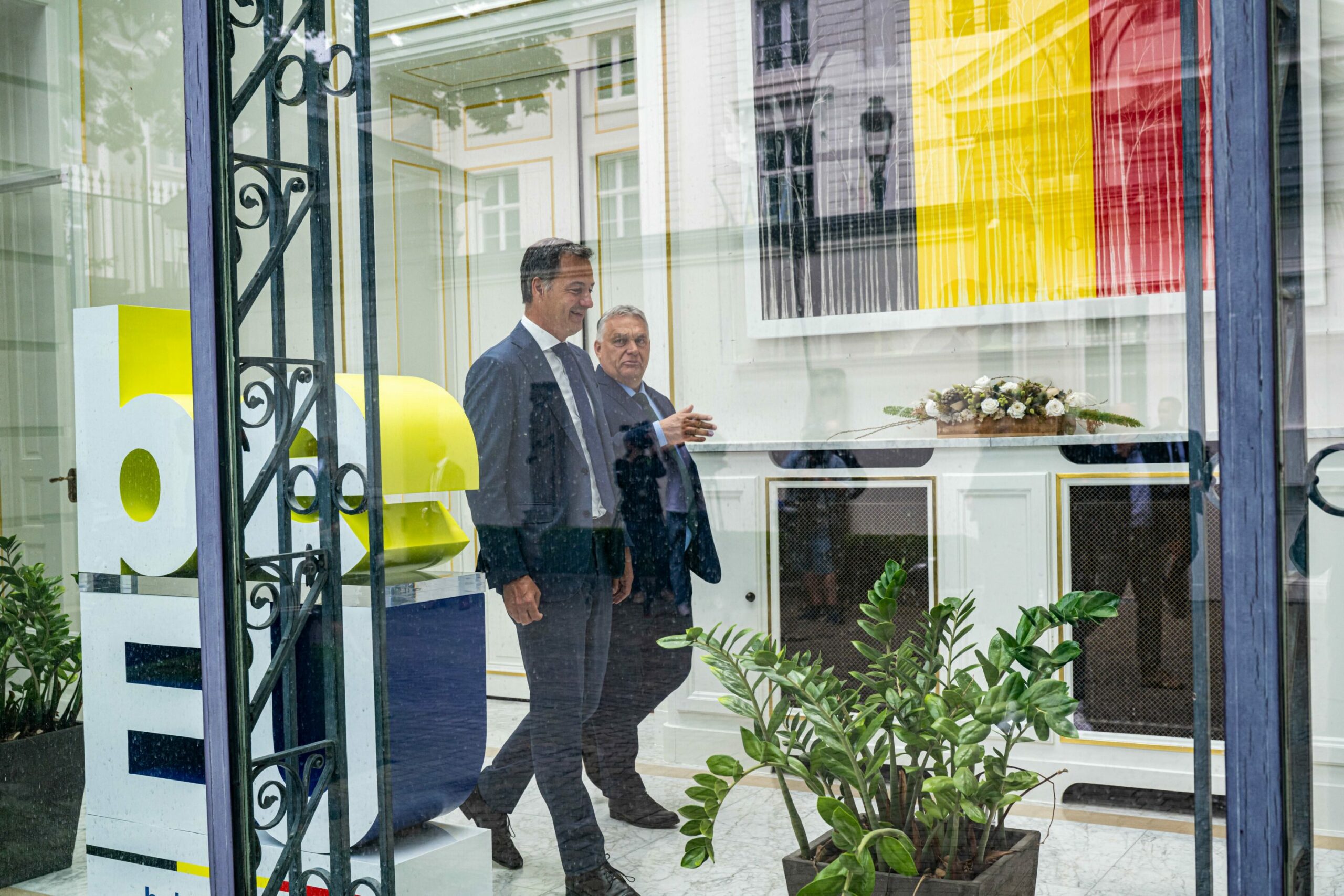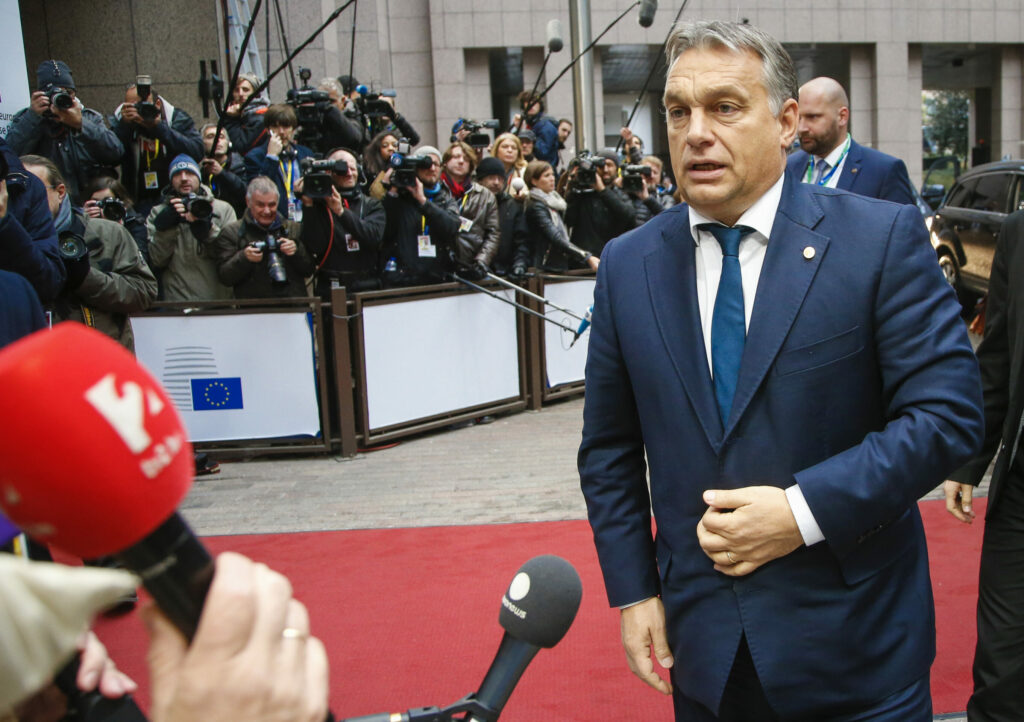Hungarian Prime Minister Viktor Orbán has been accused of spying on his fellow EU Member States and institutions, most notably on delegations visiting Budapest.
According to a report in Belgian media De Tijd and Hungarian non-profit Direkt36, there have been periods when almost all EU delegations visiting Hungary were spied on by Hungarian intelligence services (IH). Since 2012, the agency has been under the control of a close Orbán and Fidesz party ally, János Lázár.
The spying involved IH searching hotel rooms of European officials when they were out, as well as downloading data from laptops or electronic devices left behind.
Another common method has involved gathering information through Hungarian citizens working within the EU institutional system. This is done either with their cooperation or by spying on them without their knowledge.
Son-in-law
The report also mentions a specific case of spying against the Brussels-based EU anti-fraud office (OLAF), who was at the time investigating the business of Viktor Orbán’s son-in-law, István Tiborcz.
OLAF's investigation into Elios, a company formerly partly owned by Orbán's son-in-law, was from 2015 to December 2017. The spying is believed to have taken place in Budapest.
Direkt36 revealed at the time how public tenders were tailored to Tiborcz’s former company. OLAF investigators travelled to Hungary on four fact-finding missions between 2015 and 2017 to gather information about the tenders that had been partly financed with EU funds.

Former Belgian Prime Minister Yves Leterme and Hungarian Prime Minister Victor Orban pictured during the official handing over ceremony of the rotating Presidency of the Council of the European Union, in Budapest, Thursday 06 January 2011. Credit: Belga / Benoit Doppagne
"They talked a lot over the phone about the Elios case, for example," an insider told De Tijd. "The IH made recordings of those conversations and extracted information from them."
OLAF inspectors were also physically followed around Budapest. In some cases, the EU officials drove in circles to show that they were on to the spies. This report was confirmed to by several EU officials.
They also confirmed their belief that physical surveillance and eavesdropping has also happened in Brussels – not only of OLAF officials conducting investigations in Hungary, but also from other EU bureaucrats. The report also mentions the use of spyware against journalists, including the Hungarian ones undertaking the investigation.
Intelligence Online, a magazine specialising in spying and intelligence services, wrote in February last year that the Hungarian intelligence was then focusing its spying on EU policymakers in Brussels, in the context of EU funding that Budapest was after.
Now punishable
"An EU Member State should normally be a friendly environment," an EU official who knows the details of the spying activities, told De Tijd. "The system is not designed to deal with a situation where a member state becomes hostile."
If a diplomat is caught spying in Belgium, State Security can ask the Ministry of Foreign Affairs to declare a them persona non grata.
While there is no record of this happening with a Hungarian official, State Security keeps an eye on any espionage and interference against the EU institutions, even if another EU member state were to engage in it.

Prime Minister Alexander De Croo meets with Prime Minister of Hungary Viktor Orbán for a ceremony to hand over the six-month rotating presidency of the Council of the EU from Belgium to Hungary, Monday 01 July 2024 in Brussels. Credit: Belga
Since April, such activities on Belgian territory have become explicitly punishable, with State Security needing to pass on its notes on foreign interference and espionage to the Public Prosecutor.
This is also why Qatargate case in the European Parliament was in the hands of Belgian security services for so long as an investigation – it was only after bribes were discovered that a criminal investigation become possible.
The new rules also sped up a criminal investigation to proceed more quickly in another dossier, the one of Russian interference in the European Parliament and fake news website Voice of Europe.

